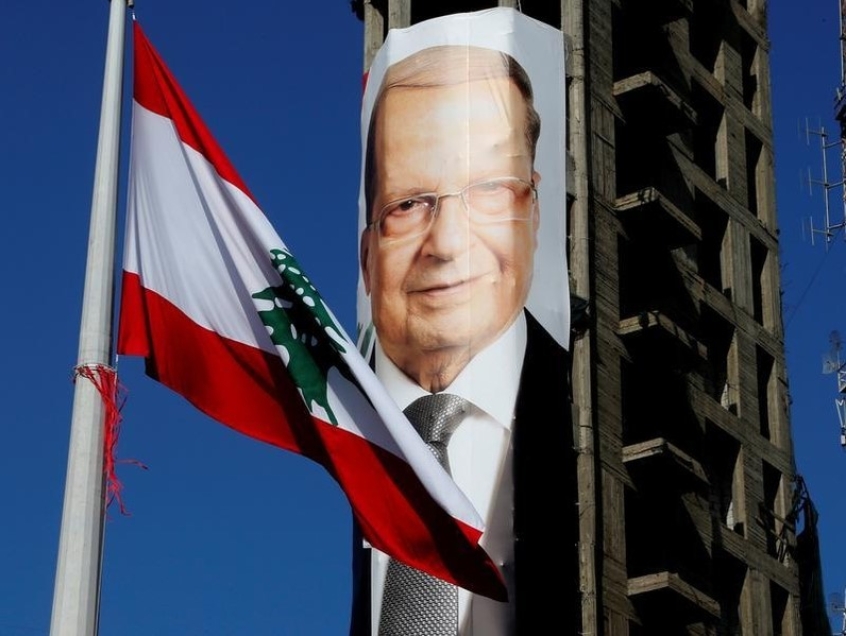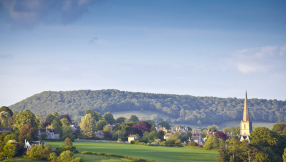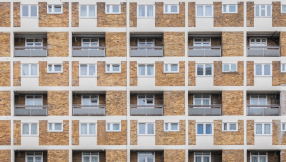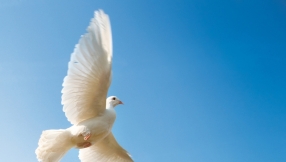
The President of Lebanon has declared that Christians in the Middle East are 'no longer in direct danger' during an interview in which he also opened up about his own Christian faith.
President Michel Aoun, the general and former prime minister of the country, told the Catholic news site Aleteia: 'I believe that Christians in the region are no longer in direct danger, but the danger remains in the form of terrorist cells that target everyone, Christians and Muslims. Everyone has been affected, [for example] both mosques and churches have been attacked in Syria.'
Aoun, who met with Pope Francis in Rome this week, was asked who Jesus represents to him.'For me, Jesus Christ is the first rebel in history and probably the only one, because he changed the world,' the President said.
Aoun went on to outline at length his views on the break Jesus made with the Jewish religion of the Old Testament.
'Christianity arose in the world as an ideology when Judaism was the first religion and the Jews believed that God was for them alone,' he said.
'The commandments were prohibitions, for example: "Do not take the name of God in vain," but Christ came to give God, Christ did not make a special God, he made him God for everyone.
'People do not pay attention to the fact that the law of Moses is not the same as Jesus Christ's commandments, although there are many examples that prove this.
'The law said, "Do not take the name of God in vain." Christ did not say that, but he said, "Simply let your 'Yes' be 'Yes,' and your 'No,' 'No.'"
'Christ did not say, "Do not kill," but he said, "Love one another." Killing is a negative behaviour, while love is the fundamental relationship between human beings.
'He did not say, "Do not be sad," but he said, "anyone who looks at a woman with lustful intent has already committed adultery with her in his heart." Christian teaching is positive for man. It shows him what he has to do, not what he should not do.
'Jesus did not say, "Do not steal," rather he said, "Go, sell what you have."
'Jesus did not say "Do not give false testimony," he did not sit idly by, but he said, "I have come into this world for judgment."
'This is what Christianity represents for me, and whereas the law of Moses is based solely on "non-aggression" ,the Christian message is a message of peace for the whole world; there is a difference between the two, and Christianity has created peace in the world.'
Elsewhere in the interview, Aoun described Lebanon as a melting pot of Islam and Christianity and a 'model' for the world.
'Lebanon is the meeting place of different cultures and civilisations, and its social fabric includes all the confessions of Islam and Christianity that live in harmony, respecting freedom of belief and political balance, and this is proof that it has been a sophisticated model throughout the Muslim conquest up until today,' he said.
Describing the plight of Christians in the Middle East in recent years as a 'disaster', he went on to say of Lebanon: 'Fear is now behind us; we have overcome one of the most dangerous phases in our history. The threats to our security that take place today, like car bombs for example, are very little in comparison to our past history.'
Aoun was almost certainly referring to the Lebanese Civil War, which lasted from 1975 to 1990 and resulted in an estimated 120,000 fatalities. Almost a million people are believed to have fled Lebanon as a result of the civil war, which was between Phalangist militia and Palestinians.
'We have resisted, our national unity is still intact, and the internal danger in Lebanon has been suppressed,' Aoun said. 'The current situation is much better; what remains is the bad economic situation in the world. The world must reconsider the regulations it has made, and reflect on the false steps taken by the new international regime in regard to the economy, so that many things can be solved.'
The President also compared the plights of Syrian and Palestinian refugees, declaring their 'right to return' to their homelands. 'One and a half million Syrians and half a million Palestinians, they must all go back when the situation in their country becomes secured,' he said.













